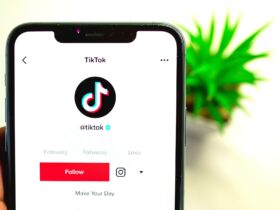When a user is away from home and using Netflix on a device that is not at home, they will need to get a temporary code for logging in, which will provide them access to their account for a period of seven days. It is interesting to note that these particulars are not accessible in any markets outside the United States and Canada; this leads one to believe that Netflix is likely just implementing the modification in the North American area for the time being.
Here is everything you should know:
- Who Currently Has Access to a Netflix Account?
Netflix memberships may still be shared, but only among members of the same household. Netflix is now requesting that customers connect their devices to the Wi-Fi network at their main location, open the Netflix application or the site, and view anything at least once every 31 days. This is being done to verify that your devices are properly connected with your home location.
- Is It Still Possible to Share Netflix with Someone Who Doesn’t Live in the Same House?
No, each account is only intended to be used by members of the same household. Netflix will notify people who attempt to login in to your account from another location that they need to create their own account instead, and will limit their access until they do so. Netflix won’t start automatically charging subscribers whose information is utilized outside of their residences if they have an account with the streaming service.
- What are the Steps You Can Take to Prevent Netflix from Blocking Your Devices?
If you sign in to your home Wi-Fi network on each of your devices at least once every 31 days, Netflix will recognize them as “trusted devices” and allow access to their content without restriction.
If Netflix has inadvertently banned your device, you will need to get in touch with customer support in order to get it unlocked.
- How Will Netflix Know That You Are Not at Your Primary Location, Which Is Usually Your Home?
Netflix will establish whether a device that is logged into your account is connected at your main location by using information such as IP addresses, device IDs, and account activity.
If you discover that someone who is not permitted to use your device is using it outside of your home, you may login into your account, sign out on all other devices, and then change the password for your account.
- How Many Different Devices Can You Use Netflix on at the Same Time from the Same Location?
Everything depends on the particular plan to which you have subscribed at this point. Netflix provides its users with a choice of four various pricing tiers, and the number of simultaneous streams available to users is contingent on the tier to which they subscribe.
- Are Other Users Able to Save Their Profiles When Using Your Netflix Account?
It is true that Netflix provides customers with a profile transfer function that enables them to move their program recommendations, viewing history, and other information to their very own account in the event that they want to establish their very own account. Users who have previously shared their password will be able to keep their profile even after creating their own Netflix account thanks to this feature.
- Is It Possible to Continue Using Netflix Even When You’re on the Road?
If you sign into Netflix on a device that is not associated with your household, there is a chance that Netflix may limit access to that device. This may prohibit you from registering into new devices while you are traveling; however, Netflix has developed a solution for this potential problem. Users who are going to be away from home and wish to watch Netflix on a smart TV in a hotel, a laptop provided by their employer, or anything similar may ask the service for a temporary code when they check in. Because of this, they will have access to their account for a period of seven days in a row.















Leave a Reply